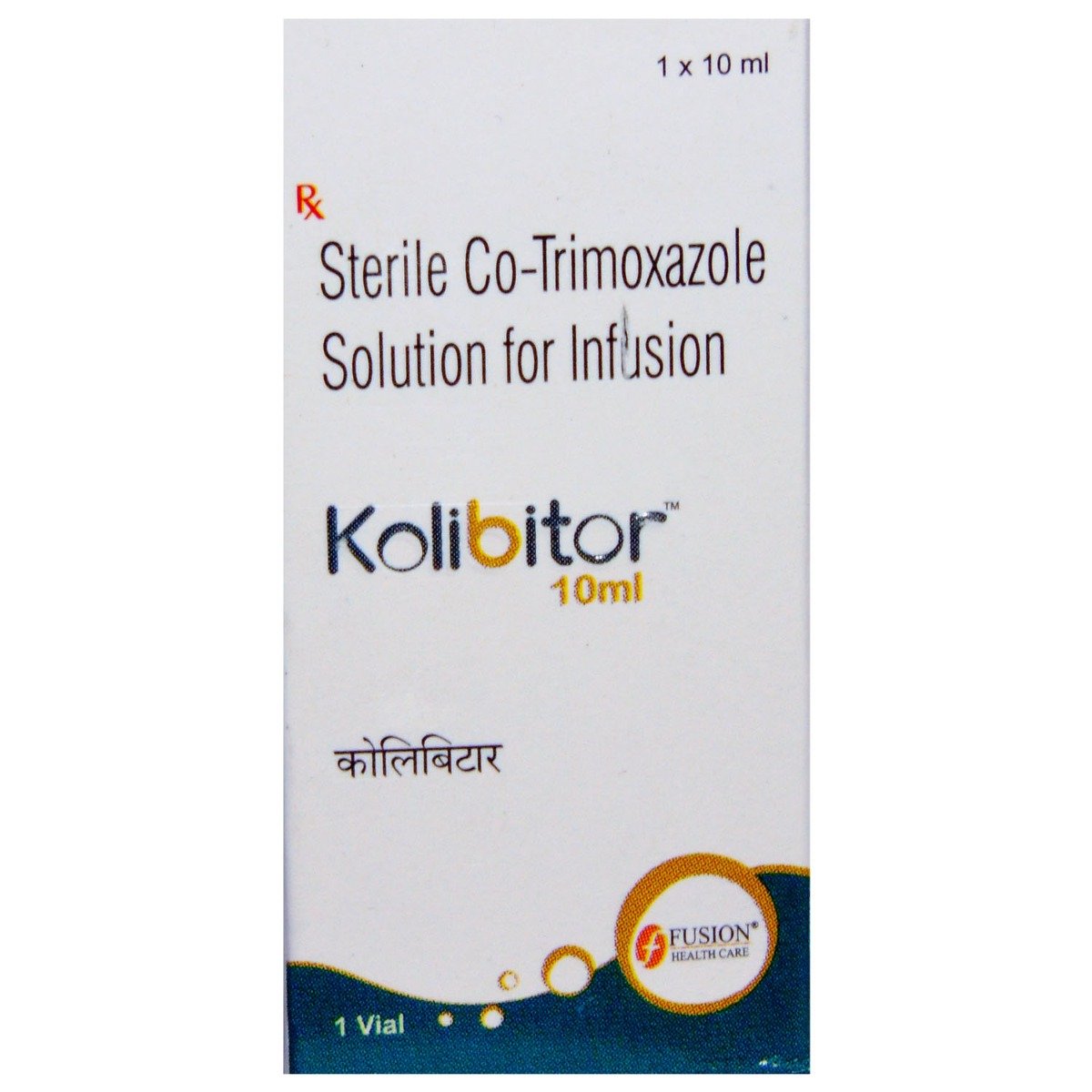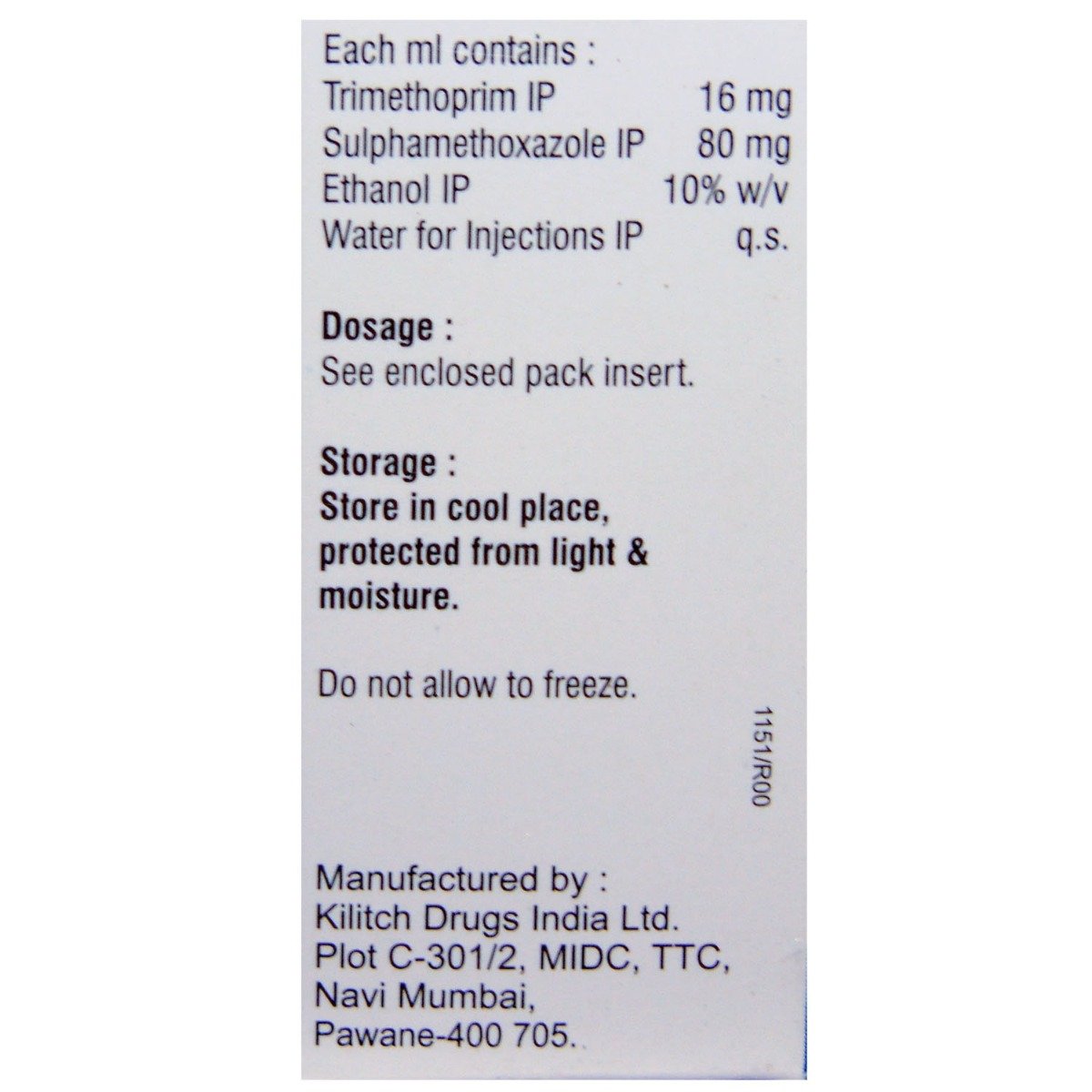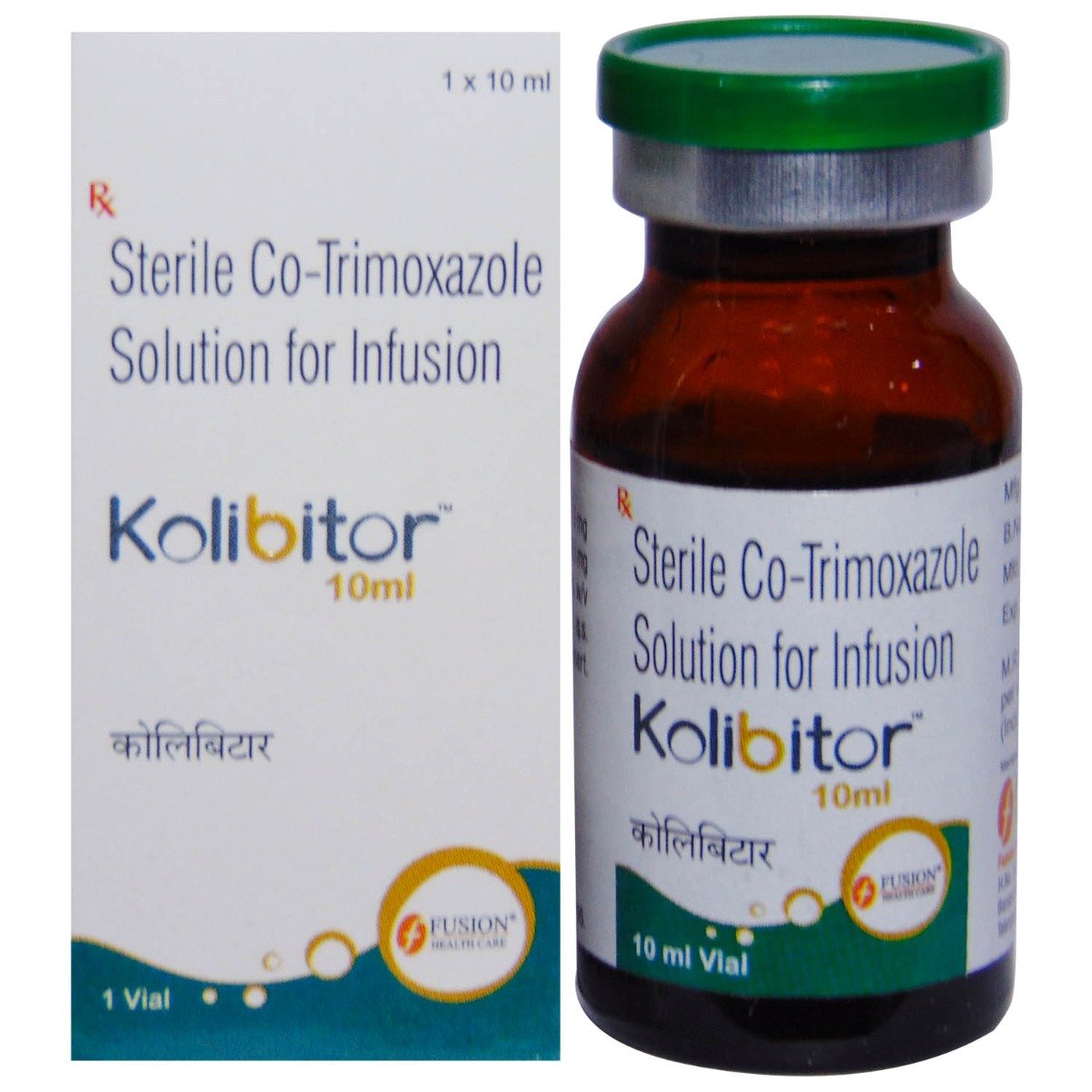कोलिबिटोर इंजेक्शन 10 मि.ली



MRP ₹562
(Inclusive of all Taxes)
₹84.3 Cashback (15%)
Know Your Delivery Time
Provide Delivery Location

Secure Payment

India's Most Trusted Pharmacy

Genuine Products
निर्माता/विपणक :
उपभोग प्रकार :
वापसी नीति :
को या उसके बाद समाप्त हो जाएगा :

Have a query?
Drug-Drug Interactions
Drug-Drug Interactions
Login/Sign Up
Taking Kolibitor Injection 10 ml with BCG vaccine can reduce the effectiveness of the BCG vaccine
How to manage the interaction:
Although there is an interaction between Kolibitor Injection 10 ml and BCG vaccine is not recommended, they can be taken together if prescribed by a doctor. Do not discontinue any medications without consulting a doctor.
The combined use of Kolibitor Injection 10 ml and clozapine may increase the risk or severity of toxicity.
How to manage the interaction:
There may be a possibility of interaction between Clozapine and Kolibitor Injection 10 ml, but it can be taken if prescribed by a doctor. If you're having any of these symptoms like fever, chills, sore throat, or muscle aches, it's important to contact your doctor right away. They may be able to recommend other options for you that won't cause any problems. Don't worry, there are solutions available to help you feel better. Do not discontinue any medications without first consulting your doctor.
Taking Kolibitor Injection 10 ml with candesartan can increase the risk of hyperkalemia (high potassium levels in the blood) and kidney problems.
How to manage the interaction:
Although there is an interaction between candesartan and Kolibitor Injection 10 ml, they can be taken together if prescribed by a doctor. Do not discontinue any medications without consulting a doctor.
Using ropivacaine with Kolibitor Injection 10 ml can cause higher levels of Kolibitor Injection 10 ml in the blood.
How to manage the interaction:
Although taking Ropivacaine and Kolibitor Injection 10 ml together can evidently cause an interaction, it can be taken if your doctor has suggested it. However, if you experience gray discoloration of the skin, abnormal blood coloration, nausea, headache, dizziness, lightheadedness, fatigue, shortness of breath, rapid or shallow breathing, a rapid heartbeat, palpitation, anxiety, or confusion contact your doctor immediately. Do not stop using any medications without a doctor's advice.
Taking Potassium chloride with Kolibitor Injection 10 ml may increase potassium levels in the blood. High potassium levels can cause hyperkalemia (a high level of the electrolyte potassium in the blood.).
How to manage the interaction:
Although there is a possible interaction between Kolibitor Injection 10 ml and Potassium chloride, you can take these medicines together if prescribed by a doctor. However, consult the doctor if you experience nausea, vomiting, weakness, disorientation, tingling in your hands and feet, feelings of heaviness in your legs, a weak pulse, or a slow or irregular heartbeat. It is essential to maintain proper fluid intake while taking these medications. Do not discontinue any medications without a doctor's advice.
Taking Kolibitor Injection 10 ml with Quinapril can cause high levels of potassium in the blood.
How to manage the interaction:
Although there is a interaction between Kolibitor Injection 10 ml and Quinapril, but it can be taken if prescribed by a doctor. If you notice any of these signs like feeling unwell, feeling dehydrated it's best to contact your doctor right away. Do not stop using any medications without a doctor's advice.
Co-administration of Kolibitor Injection 10 ml with procaine may increase the risk of blood disorders.
How to manage the interaction:
Taking Kolibitor Injection 10 ml with Procaine together can possibly result in an interaction, but it can be taken if your doctor has advised it. If you notice any of these symptoms like gray skin, feeling sick, headache, dizziness, tiredness, trouble breathing, fast heartbeat, or feeling anxious or confused, contact your doctor right away. Do not stop using any medications without talking to your doctor.
When amiloride is taken with Kolibitor Injection 10 ml it may raise potassium levels in the blood. (High potassium levels can cause hyperkalemia, which can lead to kidney failure, muscular paralysis, abnormal heart rhythm).
How to manage the interaction:
Although there is an interaction between amiloride and Kolibitor Injection 10 ml, they can be taken together if prescribed by a doctor. However, consult a doctor if you experience nausea, vomiting, weakness, tingling in your hands and feet, feelings of heaviness in your legs, a weak pulse. Do not discontinue any medications without consulting a doctor.
Kolibitor Injection 10 ml may decrease the blood levels and effects of folic acid.
How to manage the interaction:
Although there is a possible interaction between Folic acid and Kolibitor Injection 10 ml, you can take these medicines together if prescribed by your doctor. Do not stop using any medications without consulting your doctor.
Taking potassium acetate with Kolibitor Injection 10 ml may increase potassium levels in the blood which can increase the risk of kidney problems.
How to manage the interaction:
Although there is a possible interaction between Kolibitor Injection 10 ml and Potassium acetate, you can take these medicines together if prescribed by your doctor. However, if you have unusual symptoms contact your doctor right away. Do not discontinue any medications without consulting your doctor.
Drug-Food Interactions
Drug-Food Interactions
Login/Sign Up
Kolibitor 10ml Injection Substitute

FAQs
उद्गम देश
निर्माता/विपणक का पता
Disclaimer
Author Details
We provide you with authentic, trustworthy and relevant information
Buy best Infections & Infestation products by
Cipla Ltd
Macleods Pharmaceuticals Ltd
Alkem Laboratories Ltd
Lupin Ltd
Abbott India Ltd
Sun Pharmaceutical Industries Ltd
Mankind Pharma Pvt Ltd
Micro Labs Ltd
Aristo Pharmaceuticals Pvt Ltd
Intas Pharmaceuticals Ltd
FDC Ltd
Glenmark Pharmaceuticals Ltd
Ipca Laboratories Ltd
Zydus Healthcare Ltd
United Biotech Pvt Ltd
Torrent Pharmaceuticals Ltd
Leeford Healthcare Ltd
Zuventus Healthcare Ltd
Emcure Pharmaceuticals Ltd
Biochem Pharmaceutical Industries Ltd
Hetero Drugs Ltd
Dr Reddy's Laboratories Ltd
Alembic Pharmaceuticals Ltd
Fusion Health Care Pvt Ltd
Indoco Remedies Ltd
Zydus Cadila
Cadila Healthcare Ltd
Wockhardt Ltd
Morepen Laboratories Ltd
AAA Pharma Trade Pvt Ltd
GlaxoSmithKline Pharmaceuticals Ltd
Cadila Pharmaceuticals Ltd
Elder Pharmaceuticals Ltd
Gufic Bioscience Ltd
Blue Cross Laboratories Pvt Ltd
Hetero Healthcare Pvt Ltd
Converge Biotech Pvt Ltd
Capital Pharma
Alniche Life Sciences Pvt Ltd
Medishri Healthcare Pvt Ltd
Akumentis Healthcare Ltd
Corona Remedies Pvt Ltd
Apex Laboratories Pvt Ltd
Mylan Pharmaceuticals Pvt Ltd
Pfizer Ltd
Vasu Organics Pvt Ltd
Wallace Pharmaceuticals Pvt Ltd
Veritaz Healthcare Ltd
Koye Pharmaceuticals Pvt Ltd
Samarth Life Sciences Pvt Ltd
Laborate Pharmaceuticals India Ltd
Unifaith Biotech Pvt Ltd
Hegde & Hegde Pharmaceutica Llp
Shreya Life Sciences Pvt Ltd
Overseas Health Care Pvt Ltd
East West Pharma India Pvt Ltd
Ranbaxy Laboratories Ltd
Biocon Ltd
Klm Laboratories Pvt Ltd
Lincoln Pharmaceuticals Ltd
Biochemix Health Care Pvt Ltd
Canixa Life Sciences Pvt Ltd
Medley Pharmaceuticals Ltd
Pristine Pearl Pharma Pvt Ltd
Ajanta Pharma Ltd
Indchemie Health Specialities Pvt Ltd
Zymes Bioscience Pvt Ltd
Brinton Pharmaceuticals Ltd
J B Chemicals & Pharmaceuticals Ltd
Natco Pharma Ltd
Unichem International
Yuventis Pharmaceuticals
Aurz Pharmaceutical Pvt Ltd
German Remedies Ltd
Neon Laboratories Ltd
Unipark Biotech Pvt Ltd
Icarus Health Care Pvt Ltd
Kivi Labs Ltd
La Renon Healthcare Pvt Ltd
Allites Life Sciences Pvt Ltd
DR Johns Lab Pharma Pvt Ltd
Megma Healthcare Pvt Ltd
Celon Laboratories Pvt Ltd
Kepler Healthcare Pvt Ltd
Medgen Drugs And Laboratories Pvt Ltd
Aionios Pharma Pvt Ltd
BDR Pharmaceuticals Internationals Pvt Ltd
Indiabulls Pharmaceuticals Pvt Ltd
Aequitas Healthcare Pvt Ltd
Lividus Pharmaceuticals Pvt Ltd
Nicholas Piramal India Ltd
Novartis India Ltd
Suraksha Pharma Pvt Ltd
Zee Laboratories Ltd
Auspharma Pvt Ltd
Biological E Ltd
Knoll Healthcare Pvt Ltd
Linux Laboratories Pvt Ltd
Signova Pharma
Systopic Laboratories Pvt Ltd





